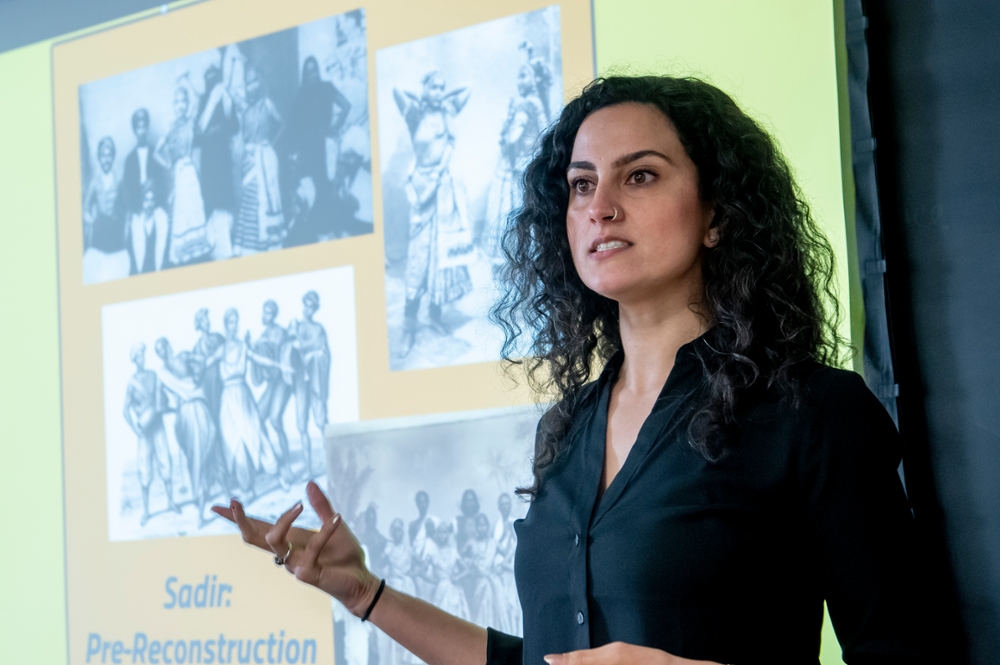Professor Sitara Thobani’s Recommended Reading
June 11, 2019
RCAH Professor Sitara Thobani's work focuses on the performance arts in colonial and postcolonial South Asia and its diasporas. Recently she received a Fulbright Award to further her research on representations of the Indian dancer in Dehli, Pune, Benares, and Lucknow.
By Sitara Thobani
 This past semester, I enjoyed returning to some foundational texts in critical race, performance and cultural studies. These included writings by Stuart Hall, Frantz Fanon, Diana Taylor, bell hooks, and Marlene Nourbese Philip.
This past semester, I enjoyed returning to some foundational texts in critical race, performance and cultural studies. These included writings by Stuart Hall, Frantz Fanon, Diana Taylor, bell hooks, and Marlene Nourbese Philip.
Reading Fanon is crucial to understanding the formation of racial subjectivity and national identity, and Hall shows how such formations are carried out and strengthened through media and everyday popular culture. hooks insists that we attend to the intersections of race with gender and sexuality, demonstrating how these come together to create ideas of Otherness.
I find that reading a text with the intention of teaching it engenders a different kind of appreciation for, and engagement with, the author, and I thoroughly enjoyed the conversations that arose in my classes when we read these authors side by side. If I had to pick one text that stood out for me in this reading, it would be Diana Taylor’s Acts of Transfer. Her insistence that we situate embodied experience within the larger historical context of colonial encounters resonated with my students; this perspective has also had a profound influence on my own work. It’s a text I encourage students to return to as every time I read it, I find a deeper layer of meaning becomes revealed.
Since the end of the semester, I have been fortunate enough to have had more time to explore further some of the readings directly related to my current research. These include the autobiography of American dancer Ruth St. Denis, as well as the biography of the legendary Indian singer, Begum Akhtar. St. Denis’ book, An Unfinished Life, captures her ambitions and perspectives as she sought to define and perform "American" dance.
The biography of Begum Akhtar, Ae Mohabat, tells the story of a larger than life woman who captured for generations the heartbreaking beauty of the ghazal (Urdu sung poetry) form, especially as her career coincided with major political and cultural transformations in the subcontinent, as well as with the transition from live to recorded performance.
Finally, outside of teaching and research, I have been reading Last Boat Out of Shanghai by Helen Zia, who came to MSU earlier this year. Zia’s book is remarkable for the ways in which she historicises the Chinese Revolution using the stories of four young people.
The stories Zia tells are gripping. However, what really stands out for me is how she grounds these stories in the interviews she conducted with elders in her community about the Revolution and their subsequent experiences of migration. In this way, Zia interrogates stories she had—and, equally tellingly, had not—been told as a child. Her book speaks powerfully to that desire to know the history of one’s family and community in the context of migration, a desire I believe many people keenly share.

